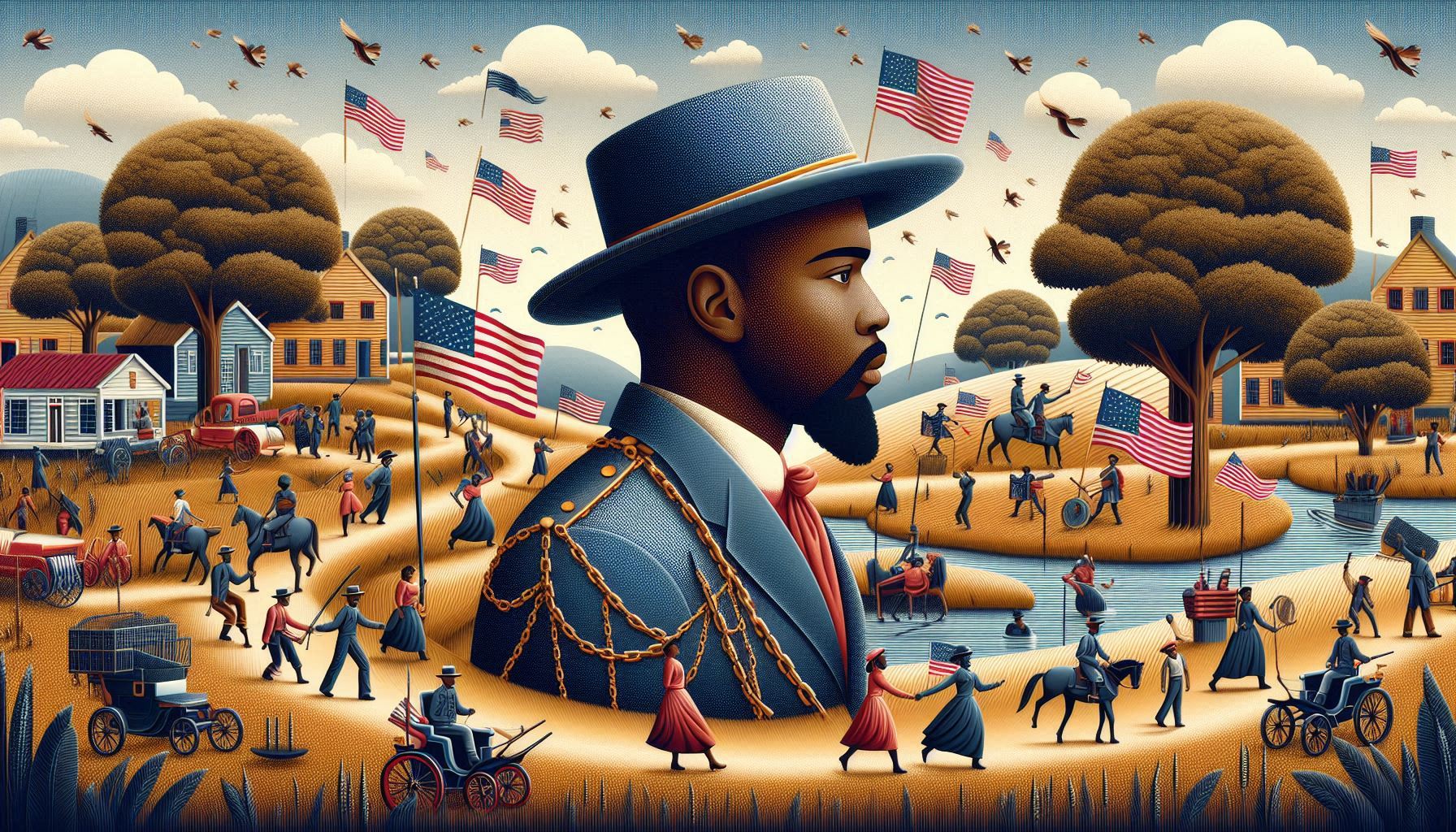Kansas City, Missouri: Juneteenth KC 2024 Heritage Festival
The Juneteenth KC 2024 Heritage Festival will take place on June 15th from 12 PM to 10 PM in the historic 18th & Vine Jazz District. This event, themed “The Resistance,” promises a day full of cultural performances, historical exhibits, and community activities, all free of charge. (Corvette Connected Kansas City, Inc.) Check it out here
Austin, Texas: Central Texas Juneteenth Parade & Festival
In Austin, the Central Texas Juneteenth Parade & Festival is a major highlight. This event features a lively parade through the streets of East Austin, followed by a festival with live music, food vendors, and activities for all ages. It’s a celebration of freedom and African American culture, bringing together diverse communities from across the region. (Explore Austin) Check it out here
Denver, Colorado: Juneteenth Music Festival
Denver’s Juneteenth Music Festival, held on June 15-16, 2024, in the Five Points neighborhood, is one of the largest Juneteenth celebrations in the country. This festival attracts over 50,000 attendees and includes live music, art installations, food vendors, and a grand parade. The event highlights Black pride and the historical significance of Juneteenth, offering an immersive experience in African American culture (Juneteenth Music Festival) (Uncover Colorado) Check it out here
Dallas, Texas: Dallas Southern Pride Juneteenth Unity Weekend
Dallas Southern Pride’s Juneteenth Unity Weekend is a four-day celebration from June 13-16, 2024. It includes various events such as the “Pure Glamour” pageant, welcome parties, and a unity festival with a pool party. The weekend culminates with the DSP Trap Brunch, all aimed at celebrating Black excellence and community unity (Dallas Southern Pride) Check it out here

The Importance of Juneteenth
Juneteenth serves as a powerful reminder of the struggle for freedom and equality. It’s a day to reflect on the past and recognize the progress made while acknowledging the work that remains in the fight against systemic racism and inequality. The celebrations often include educational activities, such as historical reenactments and panel discussions, aimed at fostering a deeper understanding of African American history.
How to Celebrate Juneteenth
Attend Local Events: Many cities host parades, festivals, and cultural performances. Participating in these events is a great way to celebrate the day and support the community.
Learn and Educate: Take time to learn about the history of Juneteenth and its significance. Many organizations and museums offer resources and virtual events that delve into African American history and culture.
Support Black-Owned Businesses: Use this day to support Black entrepreneurs by shopping at Black-owned businesses and dining at Black-owned restaurants.
Reflect and Advocate: Juneteenth is also a time for reflection and action. Consider how you can contribute to the ongoing fight for racial justice and equality in your community.
Juneteenth is not only a celebration of freedom but also a day of empowerment and unity. By participating in the various festivities and educational activities, we honor the legacy of those who fought for freedom and continue to work towards a more equitable society.
Today, Juneteenth is celebrated in diverse ways across the United States, reflecting both its historical roots and contemporary relevance. Parades, music festivals, educational programs, and community service projects are common ways people commemorate this day. These celebrations not only honor the past but also serve as a platform for advocating for the rights and dignity of African Americans.
Moreover, Juneteenth has become a critical moment for reflection and activism. It is an opportunity to confront the ongoing legacy of slavery and systemic racism and to recommit to the work of building a more just and equitable society. As such, many organizations and communities use Juneteenth as a time to host discussions on race, equity, and social justice, as well as to promote initiatives that support economic empowerment and educational advancement for African Americans.
Celebrating Juneteenth: A Historical Journey and Its Contemporary Significance
On June 19th, Americans across the country gather to commemorate Juneteenth, a holiday that marks the end of slavery in the United States. This day, also known as Freedom Day, Jubilee Day, and Liberation Day, holds profound historical significance and serves as a poignant reminder of the nation’s turbulent past and the enduring struggle for equality and justice. In recent years, Juneteenth has gained increased recognition, becoming a symbol of resilience and a call to action for ongoing social justice efforts.
The Historical Roots of Juneteenth
The origins of Juneteenth trace back to June 19, 1865, in Galveston, Texas. On this day, Union General Gordon Granger arrived with his troops and announced General Order No. 3, which proclaimed the freedom of all enslaved people in Texas. This declaration came more than two years after President Abraham Lincoln had issued the Emancipation Proclamation on January 1, 1863. The delay in enforcing emancipation in Texas was due to a combination of factors, including the minimal presence of Union troops and the resistance of Confederate sympathizers.
The joyous celebration that followed General Granger’s announcement was the first Juneteenth. The newly freed African Americans celebrated with prayer, feasting, song, and dance. This day became a deeply symbolic event, marking the beginning of the end of slavery in the United States. However, the road to true freedom and equality was, and remains, long and fraught with challenges.
Juneteenth in the Early 20th Century
In the decades following the Civil War, Juneteenth celebrations became an annual tradition among African American communities in Texas and beyond. These gatherings were often centered around community, family, and faith, with picnics, parades, and historical reenactments. Over time, however, the enthusiasm for Juneteenth waned, particularly during the early 20th century, as the African American community faced new forms of racial discrimination and violence during the Jim Crow era.
Despite these challenges, Juneteenth persisted as a cultural tradition, serving as a quiet but steadfast reminder of the promises of freedom and equality that remained unfulfilled. During the Civil Rights Movement of the 1950s and 1960s, Juneteenth regained prominence as activists drew parallels between their struggle and the historical fight for emancipation.
Juneteenth’s Resurgence and National Recognition
In recent years, Juneteenth has experienced a resurgence, fueled by a growing recognition of the need to address racial injustice and to honor African American history. This revival can be attributed to the tireless efforts of activists, historians, and community leaders who have worked to elevate Juneteenth to its rightful place in the national consciousness.
One significant milestone in this journey was the passage of legislation in 1980 making Texas the first state to declare Juneteenth a state holiday. Since then, many other states have followed suit, recognizing Juneteenth as a day of observance. The momentum continued to build, and on June 17, 2021, President Joe Biden signed the Juneteenth National Independence Day Act into law, making Juneteenth a federal holiday.
The Global Dimension of Juneteenth
Interestingly, Juneteenth is not only recognized in the United States but has also garnered attention and observance internationally. As the global dialogue around race and justice has intensified, Juneteenth’s message of freedom and resilience resonates with people worldwide. From Canada to the Caribbean and beyond, communities with ties to the African diaspora have adopted Juneteenth as a day to celebrate cultural heritage and to advocate for human rights.
Looking Ahead: The Future of Juneteenth
As Juneteenth continues to gain prominence, its future holds promise and potential. The federal recognition of Juneteenth marks a significant step, but the journey towards true equality and justice is far from complete. Moving forward, it is crucial to continue educating people about the historical and contemporary significance of Juneteenth, ensuring that this day serves not only as a celebration but also as a catalyst for meaningful change.
In conclusion, Juneteenth is a powerful testament to the enduring spirit of freedom and the relentless pursuit of justice. It is a day to honor the past, celebrate the progress made, and acknowledge the work that still lies ahead. By embracing the lessons of Juneteenth, we can collectively strive towards a future where the ideals of liberty and equality are fully realized for all. Juneteenth, celebrated on June 19th, is a significant day in American history marking the end of slavery in the United States. The day commemorates June 19, 1865, when Union General Gordon Granger arrived in Galveston, Texas, to announce the emancipation of enslaved African Americans, two and a half years after the Emancipation Proclamation was issued by President Abraham Lincoln. This year, Juneteenth 2024 will be celebrated with various vibrant festivals across the country, each honoring the rich history and cultural heritage of the African American community.


